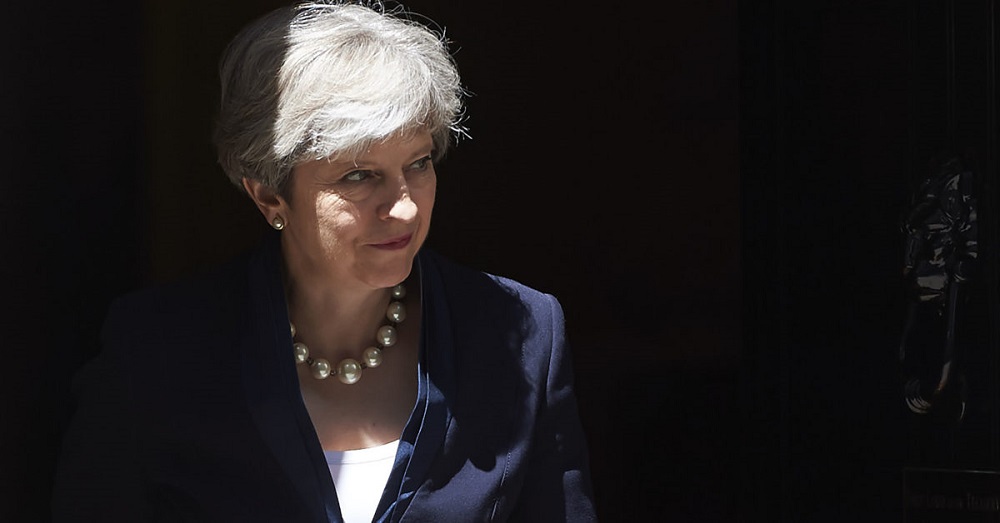British Prime Minister Theresa May has turned to the opposition as the country gears up to exit the European Union.
The appeal comes nearly a year after May took office, and just over a month after she suffered a setback from voters in a snap election.
She plans to use a speech on Tuesday to urge the opposition to help hone policy, saying the government’s ideas can be “clarified and improved” through debate and discussion. Extracts of the speech were released in advance by May’s Downing St. office.
“My commitment to change in Britain is undimmed,” May will say on Tuesday.
As her minority government prepares to start the difficult task of passing Brexit through parliament, the PM will remind Britons of her promise to build a fairer society, seeking to repair a reputation damaged by an ill-judged snap election.
May became British leader on July 13, 2016 through a Conservative Party leadership contest after predecessor David Cameron resigned when voters decided, against his advice, to quit the EU. She called an early election for June 8 in an attempt to bolster her majority and strengthen her authority during EU exit talks.
The gamble backfired when voters stripped the Conservatives of their majority in parliament and boosted the number of seats held by the left-of-center Labor Party.
The result means May must rely on deal-making and compromises to pass legislation, and is struggling to persuade her party that she is not a lame duck.
“In this new context, it will be even more important to make the case for our policies and our values, and to win the battle of ideas both in parliament as well as in the country,” May will say.
The defeat has emboldened opponents of Brexit, who hope to make the government take a more conciliatory line in divorce talks with the EU.
The election setback has led the government to abandon many of the pledges May campaigned on, including plans to reform secondary education and make seniors pay more for their long-term care.
Instead, the government says it will devote its energy to trying to pass the laws needed to pave the way for Brexit — due to take place in March 2019.
Now, May is seeking to re-boot her premiership, harking back to a promise on her first day in office to “forge a bold new positive role for ourselves in the world and … make Britain a country that works not for a privileged few, but for every one of us.”
Acknowledging that the election result “was not what I wanted,” May on Tuesday will urge opposition parties “to contribute, not just criticize.”
“We may not agree on everything, but through debate and discussion — the hallmarks of our parliamentary democracy — ideas can be clarified and improved and a better way forward found,” she plans to say.
May’s most senior Cabinet Minister, Damian Green, said Monday that the speech was an appeal for “a grown-up way of doing politics.”
And despite rumors of Conservative plots to oust May, Green told Sky News that “the prime minister is determined to carry on to lead the party and the country for many years to come.”
The first stage of the Brexit process will come later this week when a key piece of legislation, which translates EU law into British law, is presented to parliament.
Green told Sky News he was confident the government could get the legislation through.
Asked about media reports of plots to oust her, he said it was simply “gossip and chatter” at summer parties.
“There is no credible plot going on,” he said. “The prime minister is determined to carry on, to lead the party and the country for many years to come and the overwhelming majority of Conservative MPs (lawmakers) are behind her in that.”
May will make the appeal for national backing at the launch of a report into how the government should protect workers affected by a shift to different employment models, including the “gig economy” championed by the likes of Uber and Deliveroo.
The report is a key element of May’s plan to address dissatisfaction expressed at the referendum by working class Britons who felt left behind by globalization.
“At this critical time in our history, we can either be timid or we can be bold,” May will say. “We will act with an unshakable sense of purpose to build the better, fairer Britain which we all want to see.”
